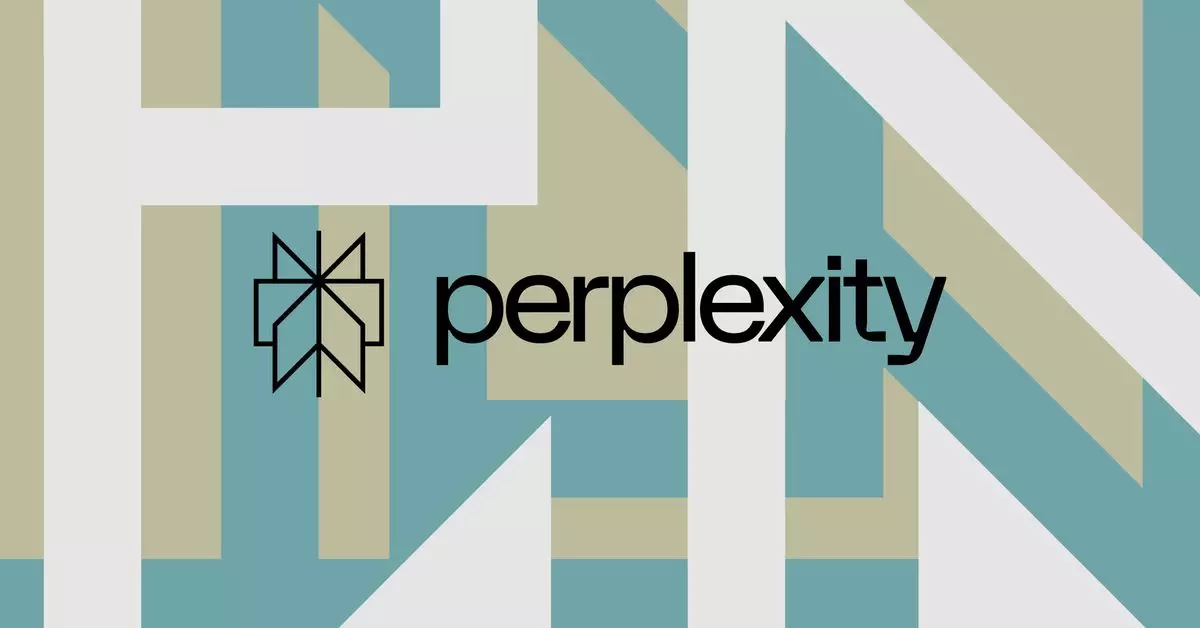In the rapidly evolving landscape of technology, particularly in artificial intelligence (AI), the intersection of innovation and intellectual property law is becoming a contentious battleground. A recent case that epitomizes this conflict involves AI startup Perplexity and media giant News Corp, which oversees renowned publications like the New York Post and The Wall Street Journal. The clash stems from allegations that Perplexity’s AI search engine has misappropriated content from News Corp’s publications, igniting a fiery debate over ownership of facts and expressions in the digital age.
News Corp has accused Perplexity of engaging in what it describes as “massive copying” of its material without proper authorization. Such claims highlight a growing concern about the practices of AI companies drawing upon existing knowledge and content. Specifically, they allege that Perplexity not only replicates these works but also presents them in a form that serves as a substitute for the original sources. This accusation intensifies the scrutiny surrounding AI technologies that leverage large datasets—often scraped from a multitude of publishers, without consent. In this context, Perplexity’s operations have raised significant ethical questions regarding the boundaries of acceptable data usage.
In a bold counter to these allegations, Perplexity released a blog post arguing that corporations, such as News Corp, are attempting to monopolize facts that should, in their view, remain in the public domain. They contend that the core struggle lies in the definition of what constitutes ownership of information. While facts themselves are not protectable under copyright laws, the specific expressions of those facts are. This nuance is critical, as it underscores the debate over whether AI programs should be subject to the same legal frameworks that govern traditional media. Furthermore, Perplexity claims that the lawsuit represents an adversarial relationship that is ultimately counterproductive to both the media and technology industries.
Perplexity’s standpoint suggests that the ongoing lawsuit signals a broader trend of hostility between media conglomerates and innovative tech firms. The company believes that this attitude is detrimental, as it stifles potential collaborations that could benefit both sectors. They cite their revenue-sharing initiatives with reputable publications as evidence of their commitment to fostering cooperative relationships. By aligning their interests with those of established media outlets, Perplexity aims to create a sustainable model that acknowledges the necessity for publishers to receive compensation for their work while still embracing innovation.
News Corp’s response to Perplexity’s defense is adamant. The corporation asserts that Perplexity is not merely a user of information but a violator of intellectual property rights, which harms journalists and the integrity of published work. The remarks made by News Corp’s CEO, Robert Thomson, encapsulate their perspective that without strict enforcement of copyright laws, the very foundation of journalistic enterprise risks being eroded. This assertion resonates with many traditional media entities that see AI technologies as existential threats to their business models, prompting a collective call for rigorous enforcement of intellectual property rights.
The conflict between Perplexity and News Corp brings to light the pressing need for clear frameworks governing the use of AI in content generation. As technology becomes increasingly integrated into our daily lives, the quest for a balance between innovation and the rights of content creators has never been more crucial. While the fact that corporations like News Corp seek to protect their proprietary content is understandable, the chilling effect such lawsuits could have on technological advancement is concerning. As stakeholders from both arenas continue to navigate this complex legal terrain, the outcome of this battle may very well set important precedents for how AI will coexist with traditional media moving forward.


Leave a Reply